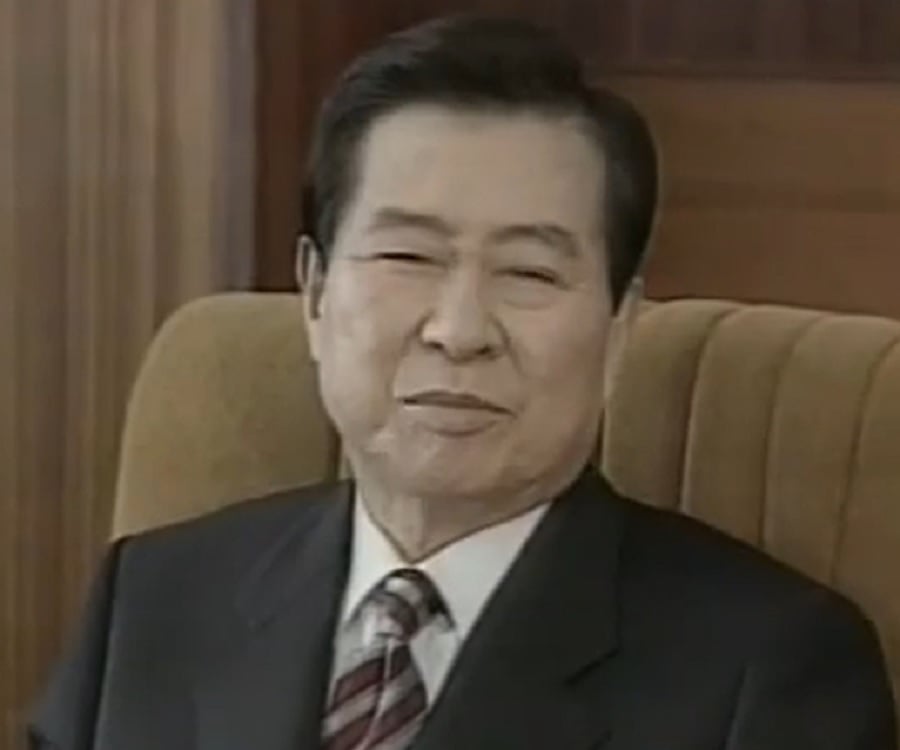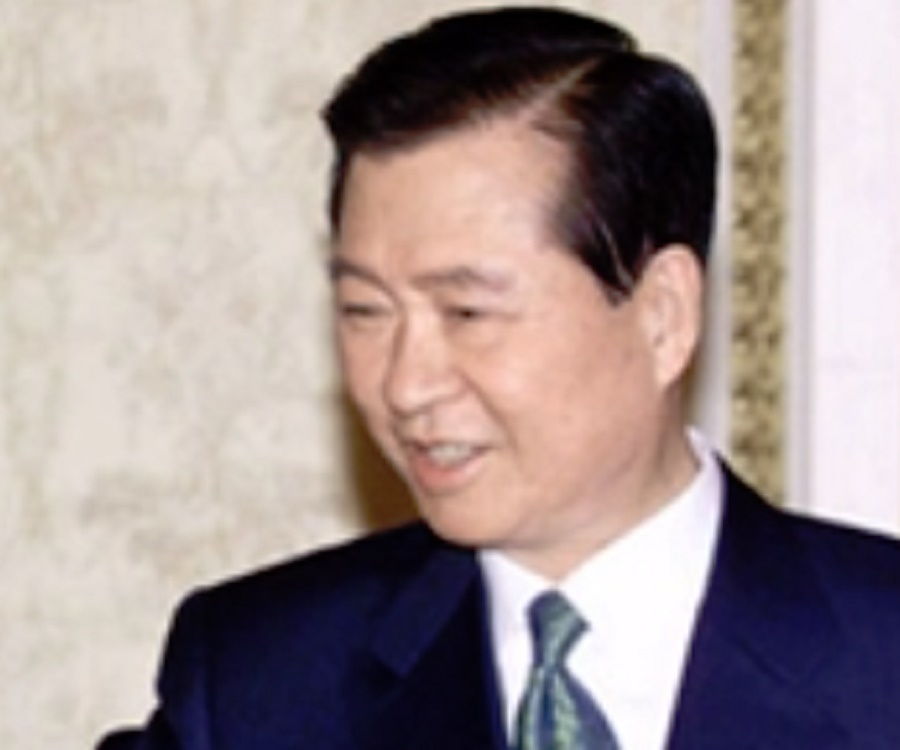Kim Dae Jung
| Famous as | Former President of South Korea |
| Born on | 03 December 1925 |
| Born in | South Jeolla, South Korea |
| Nationality | Korea, Republic Of |
| Works & Achievements | Nobel Peace Prize (2000); Known For: Struggle against the Authoritarian Rule in Korea |
Childhood & Early Life
Kim Dae-Jung was born on 3 December 1925 in a small village of
South Jeolla in South Korea and received his graduation degree from a
commercial high school in 1943. His career in politics started during
the administration of Syngman Rhee, who was the first president of
Korea. After two unsuccessful attempts, he was elected as a
representative to the National Assembly in 1961, but the assembly was
dissolved by a military coup led by Park hung-hee who later established
himself as a dictator.
Political Activities
Kim Dae Jung’s political career took a head start when he won a seat in the house in
the two subsequent elections in 1963 and 1967, thus becoming a
distinguished opposition leader. He was appointed the spokesman for the
Democratic Party in 1965 and the following year he was made the chairman
of the Party’s policy planning committee. Kim Dae Jung contested for
the presidency against Park in 1971. Though he failed in his run for the
position, he successfully gave a close chase to Park. A great orator he
was, he gained unwavering loyalty from his party members and his native
place Jeolla, where he received a record % of the popular vote, which
has remained unsurpassed in South Korean politics.
Within less than one year after coming to power, President Park
imposed martial law in the country, banning all political activities and
forcing a so called revitalizing reform through the National Assembly.
Kim along with his party members objected to these tactics to attain
power and led campaigns against Park in the U.S. and Japan- which
apparently became a factor behind in his abduction in August 1973- when
he was kidnapped by agents of Korean Central Intelligence Agency from a
Tokyo Hotel. He was released in a week after the U.S. and Japan
intervened and was placed under house arrest. On 1 March 1976, Kim was
arrested for instigating a pro-democracy demonstration and was sentenced
to 5 year imprisonment but was released in 1978; facing another house
arrest for the second time.
Following the assassination of President Park by his close aids in
October, 1979, Kim had his civil and political rights restored. However
within a few months, another group of soldier seized power and Kim was
again thrown into jail on the charges of treason. Initially, he was
sentenced to death by a military court which was altered to life
imprisonment and later, was changed to 20 year prison. In December 1982
his prison term was suspended giving him exile to the United States.
During his exile to the U.S. Kim lived in Boston, Massachusetts and
lectured at Harvard University as
a visiting faculty to the Centre for International Affairs. Upon his
return to Seoul in 1985, he was arrested and put under house arrest yet
again but his return fueled the pro-democracy movement in the nation.
In 1987, all charges against him were suspended and his political and legal rights were fully restored.
Rise to Power
In 1987 Presidential elections, Kim Dae-Jung was defeated by Roh
Tae-woo. He faced a third failure in the 1992 elections, when he was
defeated by Kim Young-sam, who won the presidency. Disheartened by these
initial failures, Kim-Dae-Jung took a temporary hiatus from politics
and moved to the United Kingdom, where he served as visiting scholar at
Cambridge University. However, he returned to politics in 1995 and
sought to run for the presidency. As the Asian financial crisis hit the
country, crushing its economy, a revolt broke out against the Young-sam
government just weeks before the election. The situation became
constructive for him to win the election held in December 1997 and he
easily defeated Lee-Hoi-chang, Young-sam’s descendant.
Presidency
Kim Dae-Jung was sworn in as the fifteenth President of South Korea
on 25 February 1998 after a controversial victory. He took charge of
the office when the economic crisis had reached its peak in South Korea.
Kim briskly pushed economic reforms recommended by the International Monetary Fund
and employed effective measures to revitalize the declining economy.
His policies brought transparency in the accounting practices and
subsidies to large corporations were dropped or cut altogether. The
country witnessed a phenomenon recovery from the Asian Financial Crisis
under his administration although many believe that the recovery was
inevitable.
Kim is credited with his successfully negotiation with North Korea;
adopting a policy that has been termed the Sunshine Policy. However,
North Korea violated the term of the engagement policy by developing
nuclear weapons and has not withdrawn the North Korean Troops; Kim’s
visit to North Korean premier Kim Jong-il led to his winning the Nobel
Peace Prize in 2000. Kim Dae-Jung completed his five year presidential
term in 2003 to be succeeded by Roh Moo-hyun.
| ||||
Timeline: | ||||
1925- Kim Dae-Jung was born on 3 December 1925.
1943- He completed his graduation in 1943.
1961- He was elected as a representative to the National Assembly in 1961.
1963- He won a seat in the house in 1963 and 1967 elections.
1965- He was appointed the spokesman for the Democratic Party in 1965.
1966- Kim was made the chairman of the Party’s policy planning committee.
1971- Kim failed in his run for presidency against Park.
1973- He was kidnapped by agents of Korean Central Intelligence Agency.
1976- Kim was arrested and sentenced to 5 year prison.
1978- He was released in 1978 and placed under house arrest.
1979- President Park was assassinated in October, 1979.
1982- His prison term was suspended giving him exile to the United States.
1985- He returned to Seoul where he was arrested and put under house.
1987- He was cleared of all charges and his political and legal rights were restored.
1987- Kim Dae-Jung was defeated by Roh Tae-woo in the Presidential elections.
1992- He was defeated by Kim Young-sam in presidential elections.
1995- He returned to politics in 1995.
1997- Kim won the Presidency in December 1997.
1998- Kim Dae-Jung was sworn in as the fifteenth President of South Korea on 25 February.
2000- Kim was awarded the Nobel Peace Prize in 2000.
2003- He completed his presidential term of 5 years in 2003.
|










0 comments:
Post a Comment